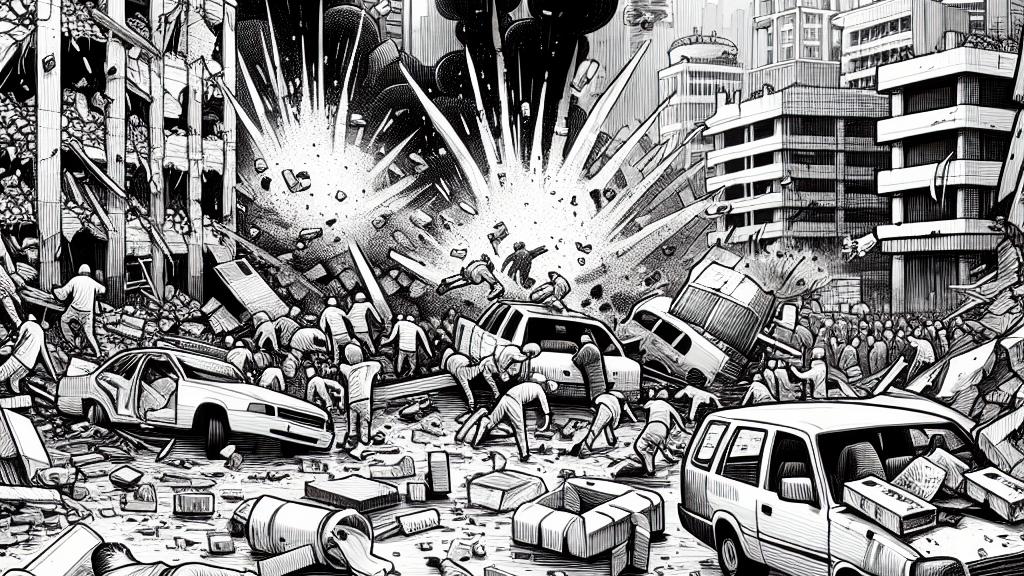Explosion of Pagers in Lebanon: Conflicts and Regional Implications
Overview
- Devastating pager explosions in Lebanon lead to tragedy, with Hezbollah blaming Israel.
- The incident may ignite further retaliatory actions from Hezbollah against its longtime rival, signaling a possible escalation.
- Amidst this turmoil, Hong Kong seeks to strengthen economic ties with ASEAN neighbors and Belt and Road partners.

The Catastrophe Unfolds in Lebanon
On a harrowing day, Lebanon experienced a catastrophic series of explosions when pagers and walkie-talkies, once seen as outdated relics, detonated unexpectedly. The devastating blasts tragically claimed the lives of at least 37 individuals and injured over 2,600 more, creating a deep sense of loss and grief within communities. Hezbollah, which had relied on these devices to evade mobile phone surveillance, swiftly accused Israel of instigating the attacks, igniting outrage among supporters. This incident starkly illustrates the precariousness of security in Lebanon, leaving many to wonder about the broader implications for stability in the Middle East.
Hezbollah's Retaliation and Regional Tensions
The fallout from the pager explosions has escalated tensions significantly, as Hezbollah's leadership makes fiery declarations against Israel. Hassan Nasrallah, the charismatic leader of Hezbollah, vehemently stated that Israel has crossed 'all limits and red lines,' implying a strong likelihood of retaliation. In response, Israel has launched a series of airstrikes aimed at crippling Hezbollah's military capacity, hinting at a new phase in the bitter conflict. Observers note that this challenge presents a window of opportunity for Israel to weaken its adversary, yet the looming threat of an expanded conflict raises alarm bells about the potential for regional instability. Will this catalyst lead to a new war, or will cooler heads prevail in finding a path to peace?
Hong Kong's Diplomatic Efforts Amid Crisis
Simultaneously, Hong Kong is recalibrating its foreign policy by actively seeking to enhance its relationships with ASEAN nations and Belt and Road partners. As the city's government faces increased scrutiny from Western countries regarding its governance and political freedoms, this strategic pivot highlights a resilient determination to secure its economic future. By fostering closer ties with developing economies, Hong Kong aims to not only bolster its economic stature but also navigate the geopolitical landscape with agility. The parallel developments in Lebanon and Hong Kong showcase how different regions respond to conflict, demonstrating the intricate interplay of local crises and international diplomacy that defines our contemporary world.

Loading...